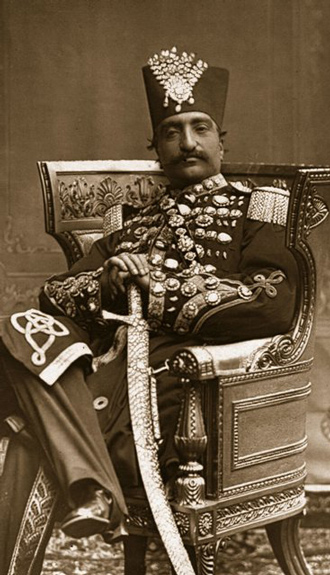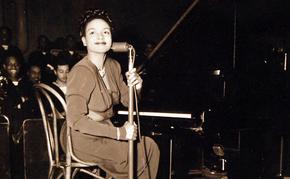The views expressed in our content reflect individual perspectives and do not represent the authoritative views of the Baha'i Faith.

The words, memorized long ago, immediately came back to me when I contemplated writing about a favorite passage from the teachings of the Baha’i Faith:
O, King! I was but a man like others, asleep upon my couch, when lo, the breezes of the All-Glorious were wafted over me, and taught me the knowledge of all that had been. – Baha’u’llah, The Proclamation of Baha’u’llah, p. 53.
I whispered the remembered passage, still stirred by words that served as both an appeal to a powerful monarch and a recollection of a life-changing personal discovery. My recollection was effortless and error free. I was surprised, having not given a moment’s thought in many years to Baha’u’llah’s appeal to Nasiri’d-Din Shah, the king of Persia from 1848 to 1896.
As a young man, I had decided to recite the opening lines from Baha’u’llah’s Tablet during “fireside” talks about the principles and history of the Baha’i Faith. I was deeply moved by Baha’u’llah’s appeal. It revealed the paradoxical joy and anguish associated with service to a high calling; it suggested the great costs that come with commitment; and it asked questions common to us all when arriving at a major crossroad in our lives.
Of course, this crossroad was not a common one; and Baha’u’llah was not an ordinary man. And how do you describe or explain the moment of revelation, the recognition that you speak for God to all mankind?

As in so much that concerns the ineffable, only metaphor can suffice:
This thing is not from Me, but from One Who is Almighty and All-Knowing. And He bade Me lift up My voice between earth and heaven, and for this there befell Me what hath caused the tears of every man of understanding to flow.
Baha’u’llah refuses to claim personal credit for his assertions, and then asks the monarch to verify the truth of his character and history. And then comes that unforgettable evocation of submission to the divine will:
This is but a leaf which the winds of the will of the Thy Lord, the Almighty, the All-Praised, have stirred. Can it be still when the tempestuous winds are blowing?
With this question I would end my recitation at the fireside, and the affect was always the same. There was momentary silence, a fascinating reflection of uncertainty and wonder as we all faced our own existential moment, contemplating the burdens of destiny and asking, can we find purpose in something greater than ourselves?
For Baha’u’llah the answer was self evident and undeniable, and this certainty gave him courage, even as he contemplated his own failings. “I was indeed as one dead when His behest was uttered“, he declared. “The hand of the will of Thy Lord, the Compassionate, the Merciful, transformed me.” And he heard an admonition: “Fear not. Relate unto his Majesty the Shah that which befell thee.”
The references in the letter to what happened to him come swiftly and without elaboration. We get provocative glimpses but few details about the pain and suffering he endured. “I sorrow not for myself,” Baha’u’llah observed, avoiding complaint or self-pity. And yet I find the allusions to his suffering frustrating in their brevity and endearing even as I they sadden me. This may seem strange or perhaps blasphemous, but I am not one to downplay the humanity of the Manifestations of God, for it is this very humanity, the references to weariness and hunger, the honest admission of frailty, the fear that comes with a great commitment, that inspire our trust, love and allegiance. His tears are ours, and in them we find the divine. I want to know more about the interior life of this man.
I can only imagine the disdain with which the Shah received Baha’u’llah’s letter, likely thought of as just one of many the King received from sycophants, the desperate, the aggrieved and the greedy, most of them with flattering invocations to the royal self. The letter’s tone is appropriately civil and courteous, but there are unmistakable ironies in and around it. Here was a prisoner, banished forever from his homeland, who dared to tell a sovereign how to lead his people and serve God! “Bring hope to the hearts”, Baha’u’llah declared. And although Baha’u’llah asserts that God had made the Shah “His Shadow amongst men and the sign of His power unto all that dwell on earth, “ it is clear who was the true king, and who was the servant.
The Shah lived for another thirty years and died in 1896, when he was assassinated and relegated to obscurity, now known only to specialists in 19th century Persian history — and those who know that he was recipient of some remarkable words from a most remarkable man who dared to proclaim at great personal cost, and with great humility, that he was the King of Kings and the Lord of Lords.
Only true spiritual giants can sustain such a delicate balance.

















Comments
Sign in or create an account
Continue with Facebookor